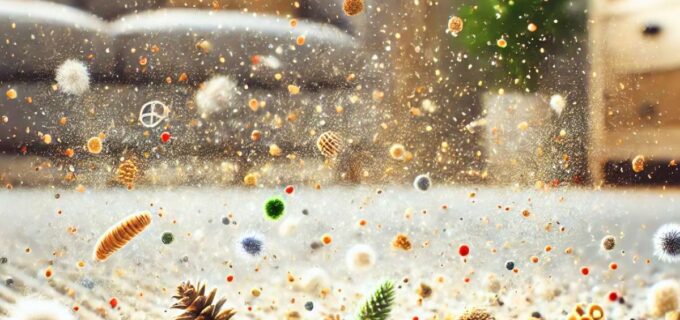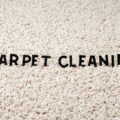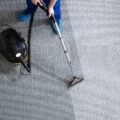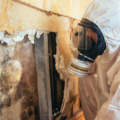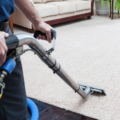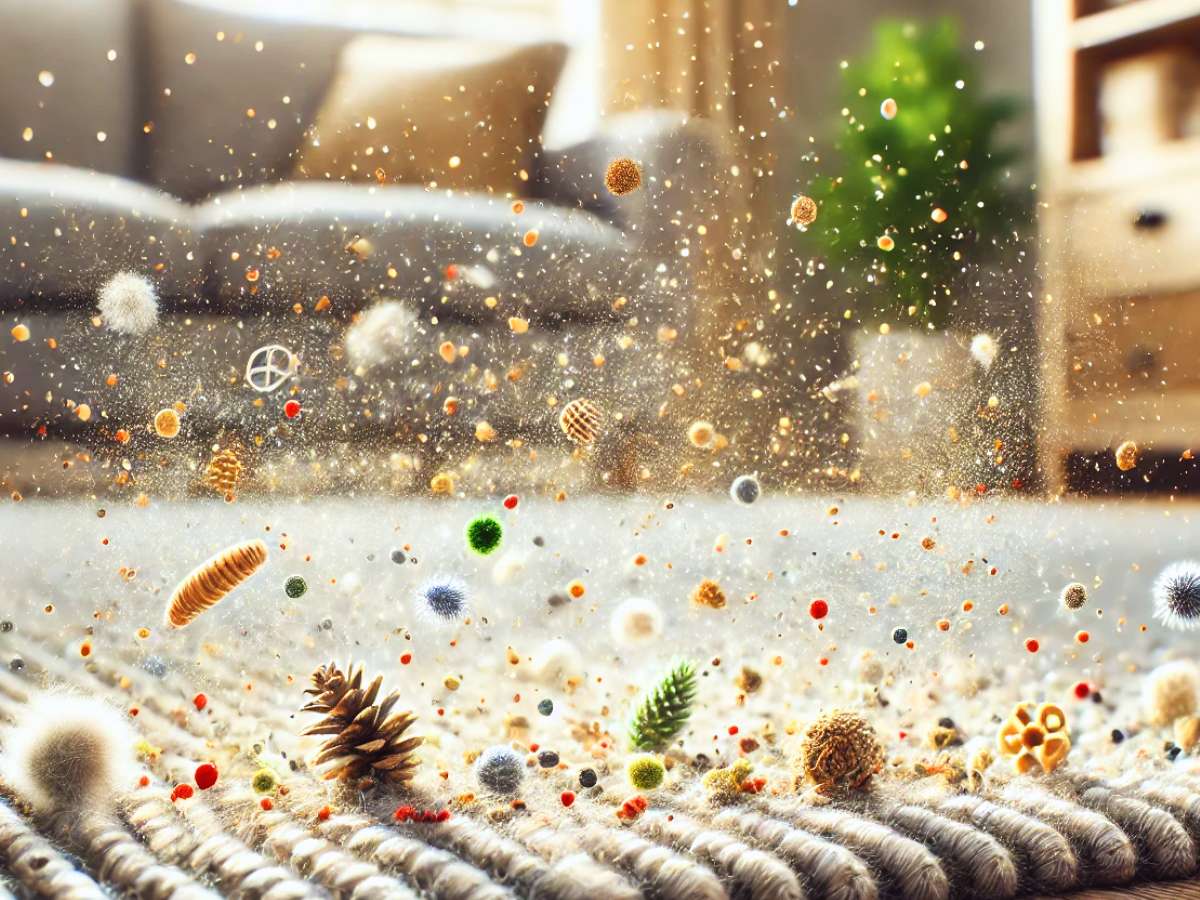
Did you know that over 10% of Singapore’s population suffers from asthma, with many more experiencing other respiratory allergies? This statistic highlights a significant health concern that affects thousands of Singaporeans daily. While we often view carpets as aesthetic additions or comfort enhancers in our homes and offices, they can harbor many allergens that negatively impact indoor air quality and health. This comprehensive guide will explore why professional carpet cleaning is essential for allergy prevention and how it can significantly improve the quality of your indoor environment.
Understanding Allergens in Carpets
Definition and Types of Allergens
Allergens are substances that can trigger allergic reactions in sensitive individuals. In the context of carpets, the most common allergens include:
- Dust mites: Microscopic creatures that thrive in warm, humid environments and feed on dead skin cells.
- Pet dander: Tiny flakes of skin shed by cats, dogs, and other animals with fur or feathers.
- Pollen: Fine powdery substances produced by trees, grasses, and weeds that can easily be tracked indoors.
- Mold spores: Reproductive units of fungi that thrive in damp environments.
- Cockroach allergens: Proteins found in cockroach droppings, saliva, and decomposing bodies.
These minuscule particles can become deeply embedded in carpet fibers, making them difficult to remove with regular cleaning methods.
Sources of Allergens
Carpets can accumulate allergens from various sources:
- Outdoor Pollutants: Pollen and other outdoor allergens can be tracked into the house on shoes or through open windows.
- Pets: Pet dander (skin flakes), fur, and saliva can settle into carpets, even in homes where pets are not allowed indoors frequently.
- Indoor Air Circulation: Dust and other particles from indoor air can settle into carpets over time.
- Food particles: Crumbs and spills can attract pests, leading to additional allergens.
- Humidity: High humidity levels can promote the growth of dust mites and mold, exacerbating allergen problems.
Signs of Allergens in Carpets
Recognizing the signs of allergen presence in your carpets is crucial for maintaining a healthy indoor environment. Be aware of the following indicators:
- Frequent Sneezing: If you or your family members find yourselves sneezing often, especially when spending time on or near the carpet, it might be due to allergens trapped in the fibers.
- Itchy or Watery Eyes: Persistent itching or watering of the eyes when near carpeted areas can indicate allergen presence.
- Coughing and Wheezing: Development of cough or wheezing sounds, particularly in the morning or after vacuuming, could be due to airborne allergens from the carpet.
- Runny or Stuffy Nose: Continuous nasal congestion or a runny nose without an apparent cause might be a sign of allergens.
- Skin Irritations: Unexplained rashes or itching, especially in children or pets who spend a lot of time on the carpet, can be a result of allergen exposure.
- Musty odors: Persistent musty smells can indicate the presence of mold or mildew in carpets, especially in areas prone to dampness.
The Health Impact of Allergens
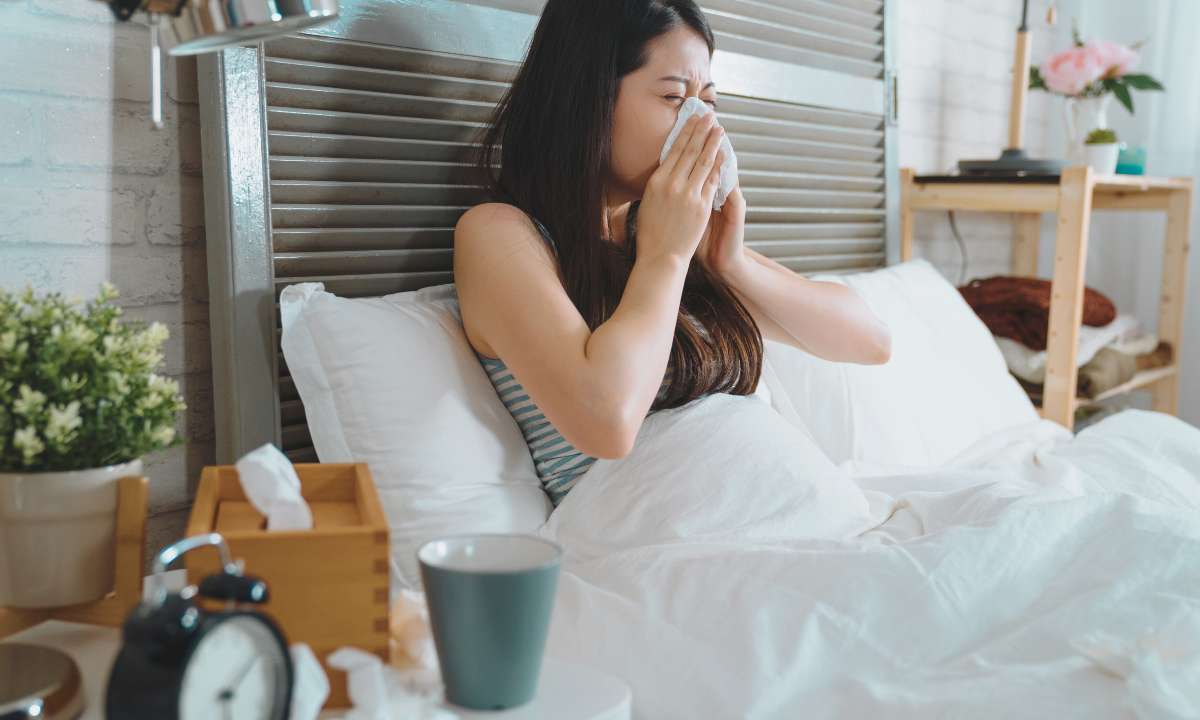
Allergy Symptoms
Common symptoms caused by carpet allergens include sneezing, coughing, itchy eyes, runny or stuffy nose, and skin rashes. These symptoms can range from mild to severe and impact daily activities and overall well-being. For some, they may be a minor inconvenience, while for others, they can significantly reduce quality of life.
Long-Term Health Effects
Prolonged exposure to allergens can have more serious long-term health consequences:
- Development of chronic respiratory conditions: Continuous exposure may lead to the development or worsening of asthma and other chronic respiratory problems.
- Weakened immune system: Constantly triggering the immune system can potentially weaken its overall function, making individuals more susceptible to other illnesses.
- Chronic sinusitis: Ongoing exposure to allergens can lead to chronic inflammation of the sinuses, resulting in frequent infections and discomfort.
- Sleep disorders: Persistent allergy symptoms can disrupt sleep patterns, leading to fatigue and decreased quality of life.
- Mental health impacts: Chronic allergies can contribute to mood disorders such as anxiety and depression, particularly when symptoms significantly impact daily life.
- Reduced lung function: Over time, constant inflammation in the airways due to allergic reactions can lead to reduced lung function.
Vulnerable Groups
Certain groups are more susceptible to the adverse effects of allergens:
- Children: Their developing immune systems and higher breathing rates make them more vulnerable to allergen exposure.
- Elderly individuals: Age-related changes in the immune system can make older adults more sensitive to allergens.
- People with pre-existing respiratory conditions: Those with asthma or COPD are at higher risk for severe reactions to allergens.
- Immunocompromised individuals: People with weakened immune systems due to illness or medication are more susceptible to the effects of allergens.
- Pregnant women: Hormonal changes during pregnancy can increase sensitivity to allergens, potentially affecting both mother and fetus.
- Individuals with a family history of allergies: Genetic predisposition can increase the likelihood of developing allergies.
For these vulnerable groups, maintaining a clean and allergen-free environment is crucial for their health and well-being.
Why Regular Vacuuming Isn’t Enough
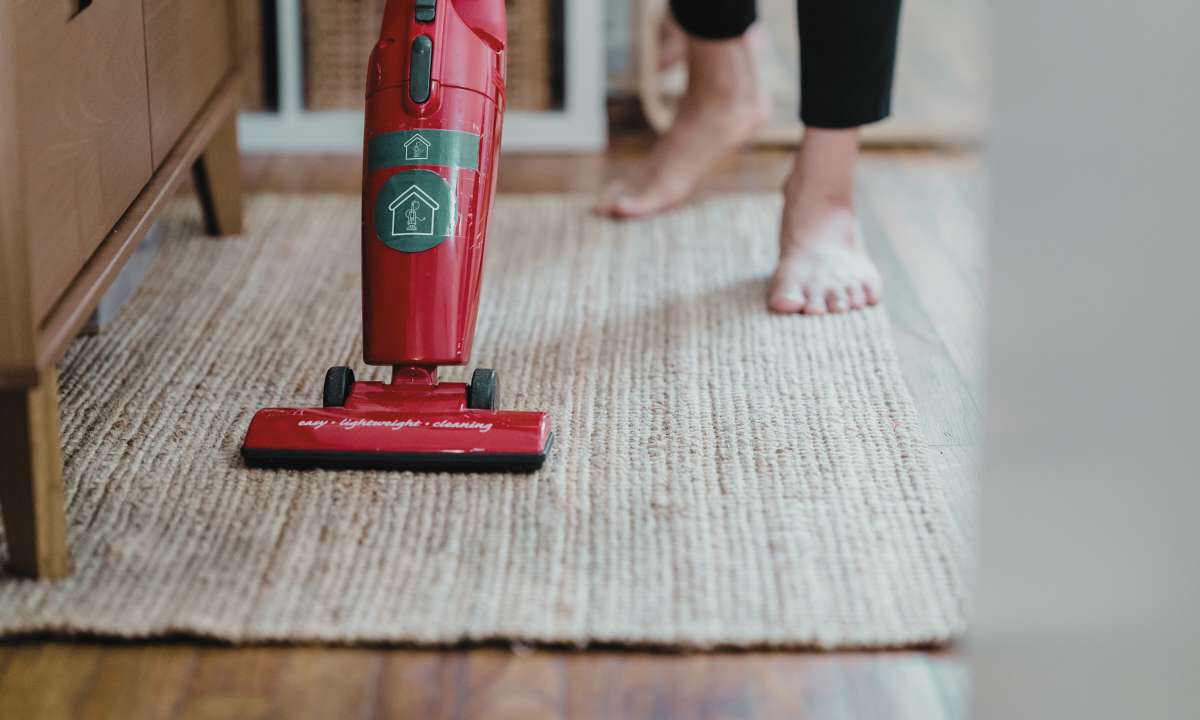
Limitations of Household Vacuuming
While regular vacuuming is essential, it often falls short in effectively removing deeply embedded allergens:
- Insufficient suction power: Most household vacuums lack the powerful suction needed to extract deeply embedded particles.
- Inadequate filtration: Standard vacuum filters may not trap the smallest allergen particles, instead recirculating them into the air.
- Surface-level cleaning: Vacuuming primarily addresses surface dirt, leaving deeper contaminants untouched.
- Ineffective against moisture-related allergens: Vacuuming alone cannot address issues like mold or mildew in carpets.
- Inability to sanitize: Regular vacuuming does not kill bacteria or dust mites that may be present in the carpet.
Inefficiency Against Micro-Particles
Household vacuums are often ineffective against microscopic allergens and bacteria.
- Size mismatch: Many allergens are smaller than the pore size of standard vacuum filters.
- Static electricity: Some allergens cling to carpet fibers due to static electricity, resisting suction.
- Deep penetration: Allergens can settle deep within the carpet pile, beyond the reach of most vacuum cleaners.
- Incomplete removal: Even HEPA filter vacuums may not remove all allergens, especially if the carpet is not vacuumed frequently or thoroughly enough.
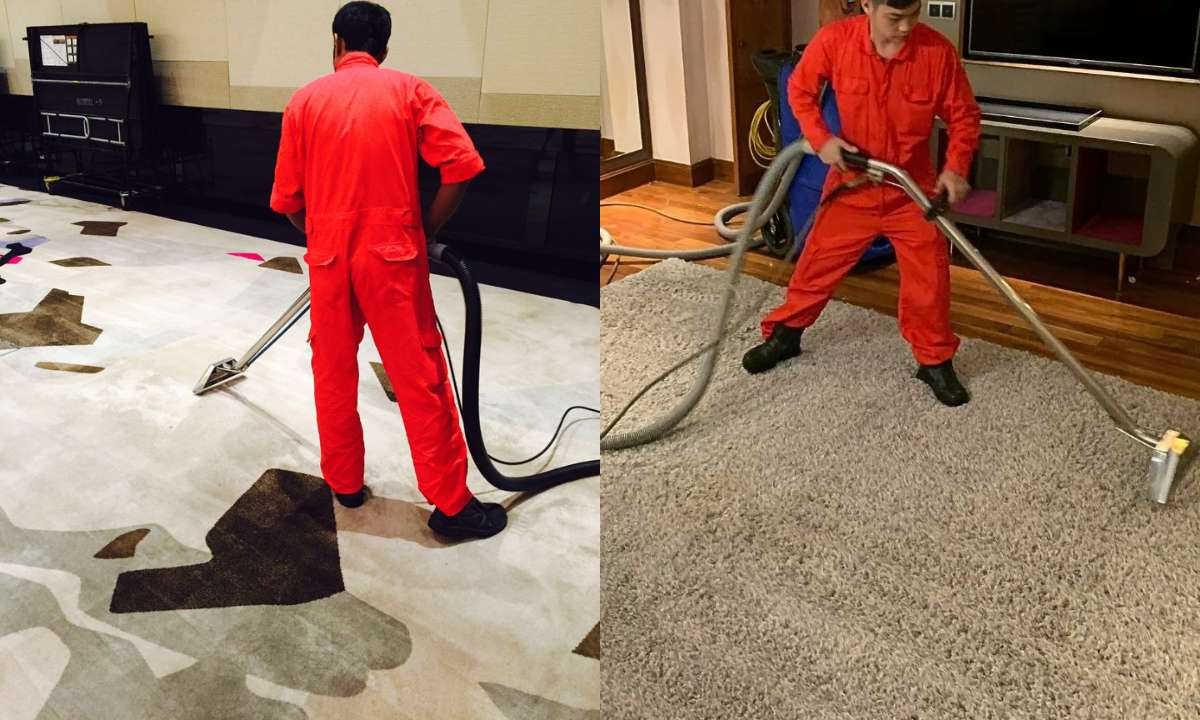
Benefits of Professional Carpet Cleaning
Advanced Techniques and Equipment
Professional carpet cleaning services use advanced techniques such as steam cleaning and hot water extraction, which are far more effective than regular vacuuming. These methods can penetrate deep into the carpet fibers, removing allergens and bacteria that household vacuums cannot reach.
Deep Cleaning
Professional services provide a level of deep cleaning unattainable with DIY methods:
- Thorough allergen removal: Professional cleaning can extract deeply embedded allergens, significantly improving indoor air quality.
- Elimination of bacteria and dust mites: High-temperature cleaning methods can kill these microscopic pests.
- Stain removal: Professional cleaners have access to specialized products and techniques for removing stubborn stains.
- Odor elimination: Deep cleaning can address the source of odors, not just mask them.
- Carpet longevity: Regular professional cleaning can extend the life of your carpet by removing abrasive dirt and debris.
Use of Eco-Friendly Products
Many professional cleaning services, including BigRed, use non-toxic and eco-friendly cleaning products:
- Safe for humans and pets: These products minimize the risk of chemical sensitivities or allergic reactions.
- Environmentally responsible: Eco-friendly solutions reduce the impact on the environment.
- Effective cleaning: Modern green cleaning products can be just as effective as traditional chemical cleaners.
- Reduced residue: Many eco-friendly products leave less residue, helping carpets stay cleaner for longer.
Professional Cleaning vs. DIY Methods
Effectiveness
While DIY methods have their place in regular maintenance, professional cleaning offers several advantages:
- Equipment quality: Professional-grade equipment is more powerful and time efficient than rental or home machines.
- Expertise: Trained technicians understand different carpet types and the most effective cleaning methods for each.
- Consistent results: Professionals can achieve more uniform cleaning across large areas.
- Problem-solving: Experts can address specific issues like stubborn stains or odors more effectively.
Cost-Benefit Analysis
While professional cleaning might seem like an additional expense, it can be cost-effective in the long run:
- Reduced medical costs: Fewer allergy symptoms can lead to lower healthcare expenses.
- Extended carpet life: Regular professional cleaning can delay the need for carpet replacement.
- Improved indoor air quality: Better air quality can lead to increased productivity and fewer sick days.
- Energy efficiency: Clean carpets can improve AHU system efficiency by reducing airborne particles.
Case Studies and Testimonials
Real-Life Examples
Consider the case of the Lim family from Singapore, who struggled with asthma and allergies. Despite regular vacuuming, their symptoms persisted. After scheduling a professional carpet cleaning, they reported a marked improvement in their health. Mrs. Lim shared, “We noticed fewer allergy flare-ups and a significant decrease in asthma attacks. The air feels cleaner, and we can breathe easier.”
Expert Opinions
Dr. Tan, an allergist from Singapore, explains, “Professional carpet cleaning services are essential for removing deeply embedded allergens that household vacuums cannot reach. This can lead to a noticeable improvement in allergy symptoms and overall indoor air quality.”
Tips for Maintaining Allergy-Free Carpets
Regular Maintenance
- Vacuum frequently: Use a vacuum with an AHU filter at least twice a week.
- Use doormats: Place mats at entrances to reduce the amount of dirt and allergens brought into the home.
- Remove shoes indoors: Implement a “no shoes” policy to minimize outdoor contaminants.
- Control humidity: Use dehumidifiers in damp areas to discourage mold and dust mite growth.
- Groom pets regularly: Brush pets outdoors to reduce the amount of dander in the home.
- Address spills immediately: Clean up spills promptly to prevent mold and bacteria growth.
- Use air purifiers: HEPA air purifiers can help remove airborne allergens.
Choosing the Right Professional Service
Here are some things to keep in mind when selecting a professional carpet cleaning service:
- Experience and Reputation: Look for companies with a proven track record and positive reviews.
- Certifications: Ensure the company uses certified cleaning methods and products.
- Customer Service: Choose a company that offers excellent customer service and clear communication.
Conclusion
Professional carpet cleaning is crucial in preventing allergies and maintaining a healthy indoor environment. By removing deeply embedded allergens, professional cleaning services can significantly reduce allergy symptoms and improve overall well-being. Consider scheduling a professional carpet cleaning with Big Red to protect your health and enhance the comfort of your home.
Choose Big Red for Unbeatable Carpet Cleaning and Allergy Prevention – Because Your Health and Comfort Matter
The importance of professional air quality monitoring in maintaining a healthy and mold-free environment cannot be overstated. Choosing Big Red for your air quality needs is a wise investment towards better indoor air quality and overall health.
Big Red’s unmatched expertise and dedication to excellence set the standard in air quality monitoring and mold prevention. Our team, armed with cutting-edge technology and comprehensive training, delivers services that meet the highest quality standards. Our commitment to customizing our approach to suit your specific environmental needs distinguishes us from competitors. We take pride in our advanced monitoring systems and certifications, which confirm our leadership in the industry. Moreover, our customer-focused ethos drives us to exceed your expectations, complemented by appealing promotions and discounts to ensure our services are accessible to all.
To experience a cleaner, healthier, and more mold-resistant space, reach out to Big Red. For professional air quality monitoring services that combat mold effectively, email us at info@bigred.com.sg, call +65 6241 9443, or send a message via Whatsapp to +65 9321 9321. Let us contribute to enhancing your living or working environment with our expert monitoring solutions designed to prevent mold growth and improve your quality of life.
